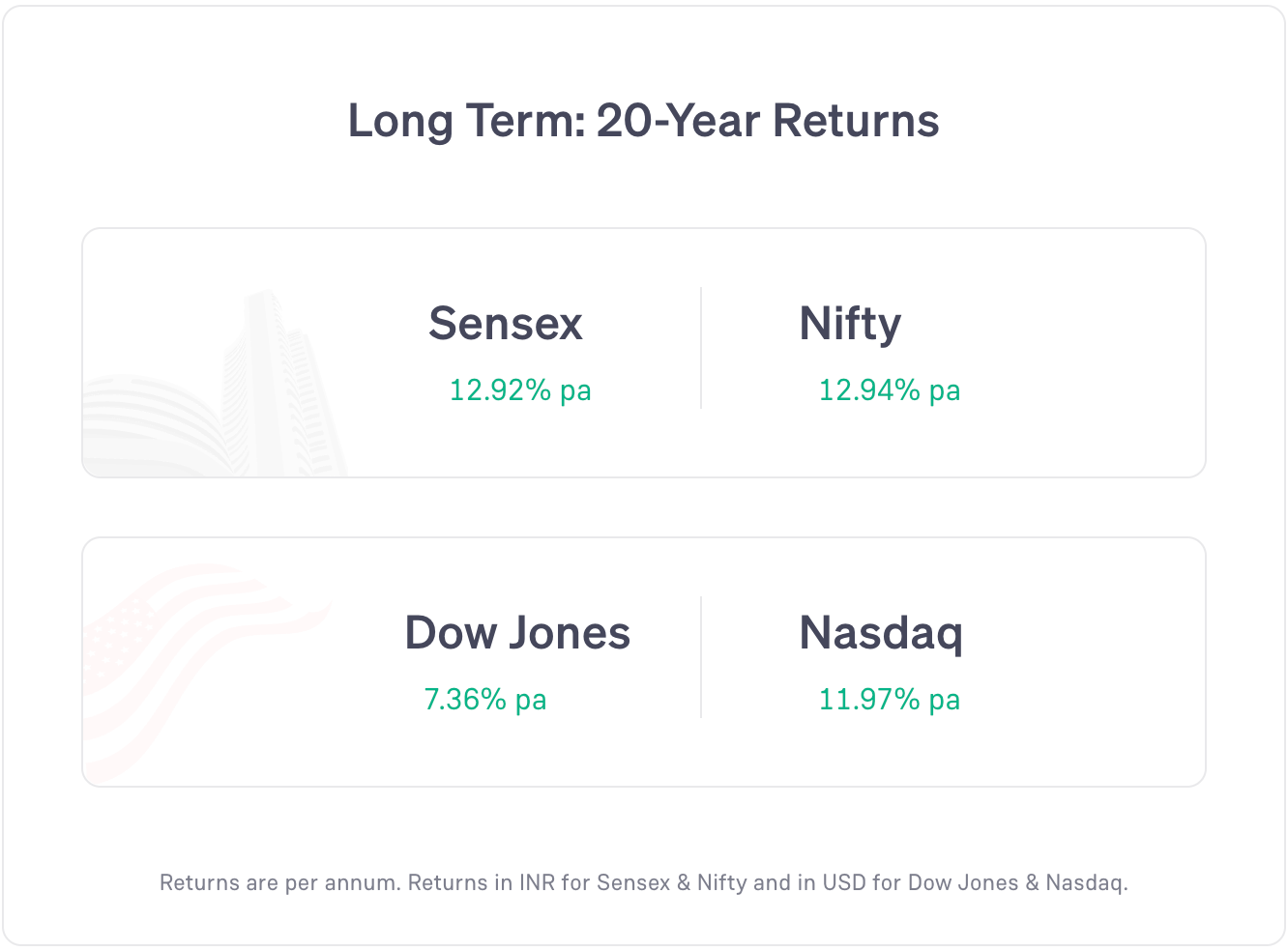India achieves 2030 Paris Agreement target, SBI to raise Rs 20,000 cr, & more - Daily Digest
Tuesday, 16 July 2025
Markets opened below yesterday’s closing point.
Nifty 50 rose in the second half of the day and closed in green near yesterday’s closing point.
PSU bank stocks and media stocks rose the most today. Metal stocks and healthcare stocks fell the most.
Global markets: Most US and Asian markets closed in red. Most European markets closed in green.
News
The central government authorised NTPC to invest up to Rs 20,000 crore (up from Rs 7,500 crore earlier) in NTPC Green and other JVs/subsidiaries to achieve 60 GW renewable energy capacity by 2032. It also said that India now has over 50% of its installed power coming from non-fossil fuel sources (5 years ahead of its 2030 Paris Agreement target).
The UK's inflation rate rose to 3.6% year-on-year in June (vs 3.4% in May). Core inflation (excluding volatile items like food and fuel) stood at 3.7% (vs 3.5% in May).
Anthem Biosciences IPO was subscribed 63.86 times. Retail subscription: 5.64 times. IPO closed for subscription.
Stocks Updates
SBI: approved raising up to Rs 20,000 crore through bonds, and a QIP at Rs 811.05 per share, pending government approval.
Tech Mahindra: net profit rose 34% year-on-year to Rs 1,140.6 crore in the April-June quarter.
Hindustan Zinc: received a Letter of Intent for a composite license for the Jhandawali - Satipura amalgamated potash and halite block in Rajasthan.
Zydus Lifesciences: received a recommendation for approval from the USFDA after an assessment at its Matoda, Gujarat facility, for Atorvastatin calcium tablets.
Lupin: launched Loteprednol Etabonate Ophthalmic Suspension in the US for ocular inflammatory conditions. It had annual sales of $55 million in the US.
Dixon Tech: will acquire a 51% stake in Kunshan Q Tech Microelectronics (India) to manufacture and distribute camera and fingerprint modules for mobile, IoT, and automotive devices.
Word of the Day
Variable Interest Rate
It is the interest rate on a loan or an investment that changes over time
It is linked to RBI’s repo rate, and moves up/down accordingly.
When the repo rate changes, the interest rate for the loans will change too.
Example: in home loans, the monthly payments (EMIs) can change — they may reduce when rates fall, but can increase when rates rise.
Thus, while variable interest rates may lower EMIs at times, they also bring uncertainty and risk (as opposed to a fixed interest rate).
6 Day Course
Theme: understanding MF returns
Day 3: Wednesday
Mutual fund returns greatly depend on the style of investing of the fund manager — especially short term returns.
This is true for a few other factors too. It also depends on the sectors/industries that the mutual fund is leaning more towards.
Example:
Mutual fund ABC has heavily invested in pharma sector stocks.
Mutual fund XYZ has heavily invested in auto sector stocks.
For some short period, pharma sector stocks start doing extremely well.
In those periods, ABC will show much higher returns than XYZ.
In the longer run, this will get balanced out.
Short-term returns' dips/rises can also be influenced by factors like interest rates, inflation, consumer demand, sector-wise factors, etc.
Featured Question
Q. “Say suppose I have a Regular SIP under one folio number in ABC Mutual Fund, which is giving positive returns. Now to avoid commission payments to broker, say I switch to Direct Mutual fund under new folio number of same fund in which I have Regular SIP. How this will impact my overall returns in ABC Mutual Fund?”
Before going ahead, we have to talk about taxes.
If you withdraw money from a mutual fund, you may have to pay taxes.
This depends on the category of mutual fund, duration of investment, and total gains made.
You must understand, switching (even under the same folio number) is a case of withdrawing and re-investing.
So while you might be ‘switching’, what actually happens is, your money is being withdrawn and re-invested.
This can mean you have to pay taxes.
This means that your overall return will dip a bit — since you are losing some money as taxes.
If you compare returns of the same mutual fund but regular plan vs direct plan, you will notice the direct mutual fund gives higher returns.
So, this advantage is something you will get when you switch.
In many cases, if you plan to withdraw the money in the near future, switching does not make sense. You will end up losing too much money in taxes.
If you plan to keep the money invested for long periods, switching still makes sense. Here, returns are higher even after paying taxes.
Please do that calculation before deciding to switch from regular plan to direct plan.
Did you like this edition?
Leave a feedback here!






